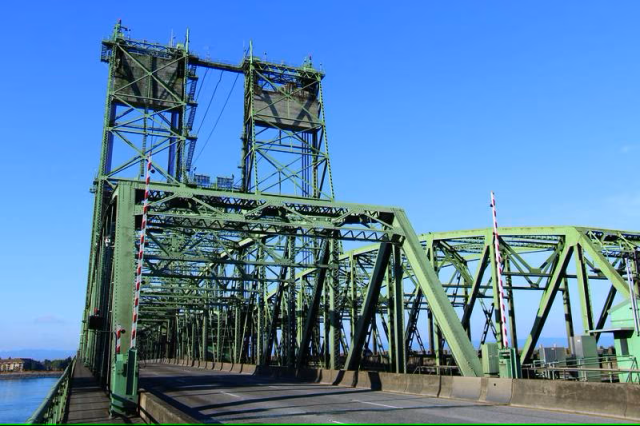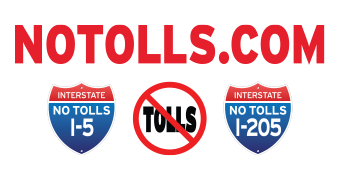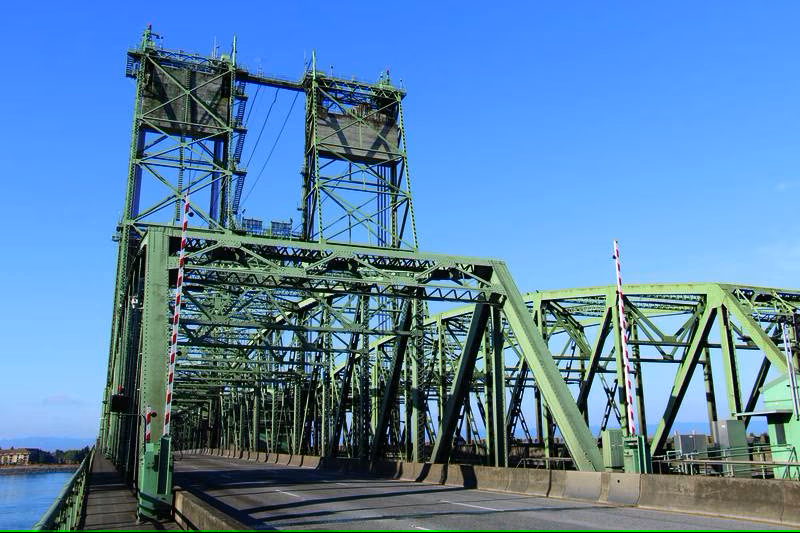The bill that would begin funding the I-5 bridge replacement got its first public hearing last week. Another is on Thursday.
BILL OF THE WEEK: House Bill 2098
For 20 years, highway engineers on both sides of the Columbia River have fantasized about replacing the aging twin Interstate 5 bridges connecting Portland to Vancouver. Over time and after the expenditure of hundreds of millions of dollars, the wish list from the Oregon and Washington departments of transportation, working together as the Interstate Bridge Replacement Project, has expanded to include rebuilding seven interchanges and widening I-5.

Like Sonny Corleone, those dreams could meet an untimely demise at a toll booth.
CHIEF SPONSORS: The Legislature’s Joint Committee on Transportation
WHAT IT WOULD DO: Previous bridge replacement efforts have failed in part because there wasn’t enough money to pay for them. There still isn’t—and the price tag on the full-build option has ballooned to about $6.5 billion. But with tens of billions of federal highway dollars up for grabs, the DOTs want both states to ante up $1 billion to generate federal matching funds. This bill would be Oregon’s commitment to a billion-dollar contribution.
The time pressure for Oregon lawmakers is twofold: First, they want to provide a match to the $1 billion that ODOT’s partner, the Washington Department of Transportation, has pledged to the project. Second, every state also wants to snag federal infrastructure money, so there is competition and thus pressure to generate a fundable proposal.
PROBLEM IT SEEKS TO SOLVE: Engineers say the two spans are obsolete (one is more than 100 years old) and would collapse in the event of a catastrophic earthquake. (Environmentalists agree it’s time for a new crossing, but they favor a bridge- and light rail-only version, which they say would be far cheaper, because it wouldn’t expand I-5 and would promote less driving.) Most people agree on the problem but, in addition to disagreeing on the scope of the replacement, they disagree on how to pay for it.
ODOT faces declining gas tax revenues and has far more projects than it can afford, even before tackling this megaproject. Gov. Tina Kotek dismissed a proposal to pony up $1 billion from the general fund. (Those dollars are earmarked for education, human services, and public safety, so transportation projects historically don’t get them.) Lawmakers have previously told ODOT to figure out how tolling could pay part of the tab.
Yet there is disagreement among constituents whether to use congestion pricing (variable tolling to discourage peak-hour use, a favorite with environmentalists) or straight tolling (ODOT’s favorite) to generate revenue, and there’s increasing opposition to any road use changes.
WHO SUPPORTS IT: The highway departments in both states (although they technically may not take a position on legislation), the Port of Vancouver, the Portland Business Alliance, the construction industry, and the Oregon Trucking Associations. These groups support the full build, including fixing all the interchanges.
“While this bill is only the first step in the process of building a new I-5 bridge, it is an important first step,” Jana Jarvis of the Oregon Trucking Associations testified April 27. “The unprecedented availability of federal funds necessitate moving forward with Oregon’s portion of the funding now in order to apply for federal funds in a timely manner.”
WHO OPPOSES IT: The Just Crossing Alliance, the Sierra Club, 1000 Friends of Oregon and other environmental groups favor the slimmed-down, bridge- and light-rail-only version. “This project bundles together a bridge replacement with a freeway expansion, which is both expensive and will induce more driving in the long run, which causes congestion to return,” testified Brett Morgan of 1000 Friends of Oregon. “In addition to this, both ODOT and WDOT have a history of major highway projects going as much as two to three times over the initial cost estimate.”
The bill got its first public hearing last week—about 60 speakers testified—and the committee will hold another hearing on the bill May 4 at 5 pm.


